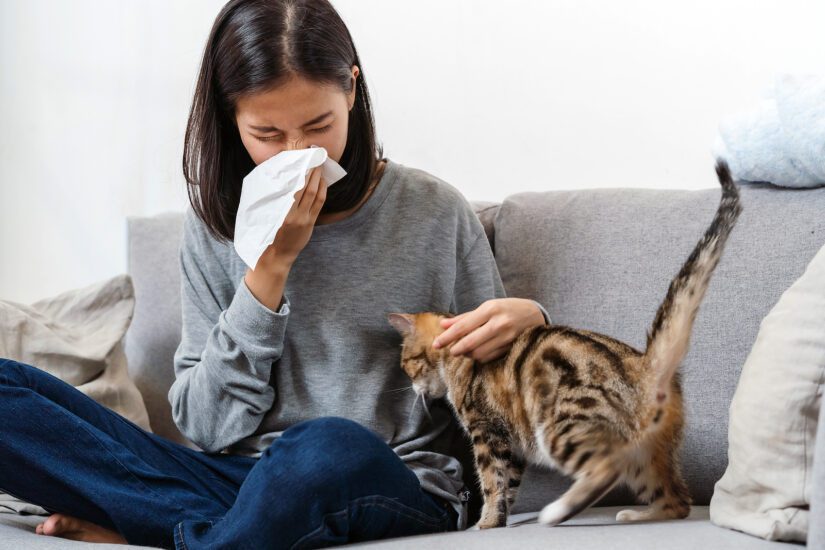Our furry friends can help make a house a home, but as many pet parents know, allergies to animals can be problematic. The good news is that living with pets and allergies is possible!

First, it is important to understand what is causing the allergies and if it’s actually the animal causing the reaction. Sometimes other irritants in the home can be causing the issue, such as dust, mold or pollen.
Allergies can be hereditary, but anyone can develop an allergy at any stage in their life. There are many treatments available that can make living with allergies much more comfortable; allergy sufferers should first consult a physician for suggestions.
In the home, people with pets can take several steps to decrease symptoms from allergies to animals. Animal allergens can be found in animals’ hair, dander, saliva, feces and urine. They can be carried on clothes and can stay in carpets and furniture for months, even after an animal is no longer living there. Follow these tips to manage animal allergies.

How to manage pet allergies
- Create an allergy-free zone, preferably the allergic person’s bedroom, and strictly prohibit the pet’s access to it. Consider using impermeable covers, such as vinyl, for the mattress, box spring and pillows. Clean curtains, carpets or upholstered furniture and wash bedding frequently in hot water.
- Replace dust and dander-catching furnishings such as curtains with blinds and carpet with tile, laminate, linoleum or hardwood flooring or use rugs that can be washed, especially in rooms where you spend a lot of time.
- Use high-efficiency particulate aid (HEPA) filter air cleaners in the bedroom and throughout the house and a Hepa-filter vacuum; remember to clean and replace HEPA filters often.
- Always wash your hands after petting your animal companions.
- Provide your pets with their own comfortable beds and blankets, and wash them at least weekly.
- Be aware of dusty or deodorized cat litter, which can be as allergenic as the cat.
- Ventilate your house – circulate air throughout your home by opening windows every day.
- Cleaning thoroughly and often – search out dust, mould and animal hair; clean and vaccuum often.
- Bathe your pet(s) frequently.
In addition to these practical measures, there are also allergy medications and treatments available to help alleviate symptoms. Consult with your doctor or allergist to determine the best treatment plan for your specific needs.
Living with pet allergies doesn’t mean you have to forego the joy of having a furry companion. By taking proactive steps to minimize allergen exposure and managing symptoms effectively, you can enjoy a happy and healthy relationship with your pets for years to come.

